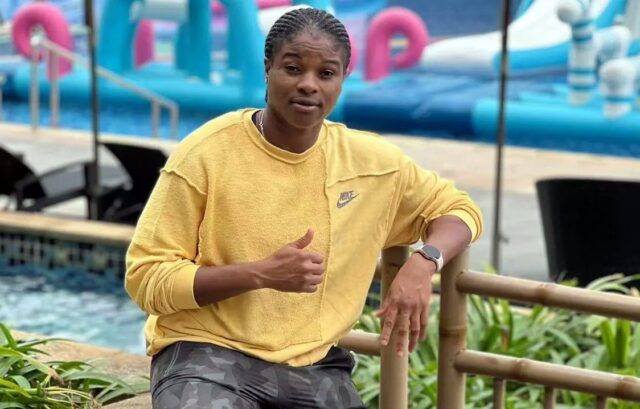Former Nigerian women’s national team player, Desire Oparanozie has shared her insights into the issues facing women’s football in Nigeria and potential solutions.
In an interview with Sports247 at the NWFL AGA earlier today in Lagos, she addressed key concerns and offered suggestions to revitalize the women’s game in the country.
Oparanozie began by acknowledging that women’s football in Nigeria has faced challenges due to factors such as inadequate facilities, officiating issues, and financial constraints.
She expressed optimism about the future of women’s football, citing the positive steps taken by the new board to address these challenges and promote the development of women’s football in Nigeria.
Drawing a parallel with men’s football, where former players like Kanu Nwankwo have assumed leadership roles, Oparanozie highlighted a lack of support as a significant factor preventing retired women’s footballers from getting involved in leadership positions within the sport.
The former Super Falcons captain stressed the importance of support, representation, and visibility for women in football, emphasizing that organizations or player unions could play a crucial role in encouraging retired players to take on leadership roles and bring about positive changes in the local league.
When asked about her plans after retirement, Oparanozie hinted at the possibility of pursuing a managerial course.
While she didn’t commit to an immediate dive into coaching, she expressed interest in it and prioritized spending time with her family and resting after her playing career.
Regarding the decline in the number of homegrown players in the senior women’s national team, Oparanozie pointed out the need for increased visibility, representation, grassroots development, and structured programs to grow women’s football.
These elements, she believes, can help nurture young talents and provide a pathway for them to reach the senior team.
Desire Oparanozie’s insights shed light on the challenges faced by women’s football in Nigeria and the potential avenues for improvement.
Her perspective underscores the importance of support, representation, and structured development programs in rejuvenating and advancing women’s football in the country.
With the commitment of stakeholders and the collaborative efforts of players like Oparanozie, Nigerian women’s football can look forward to a brighter future.









